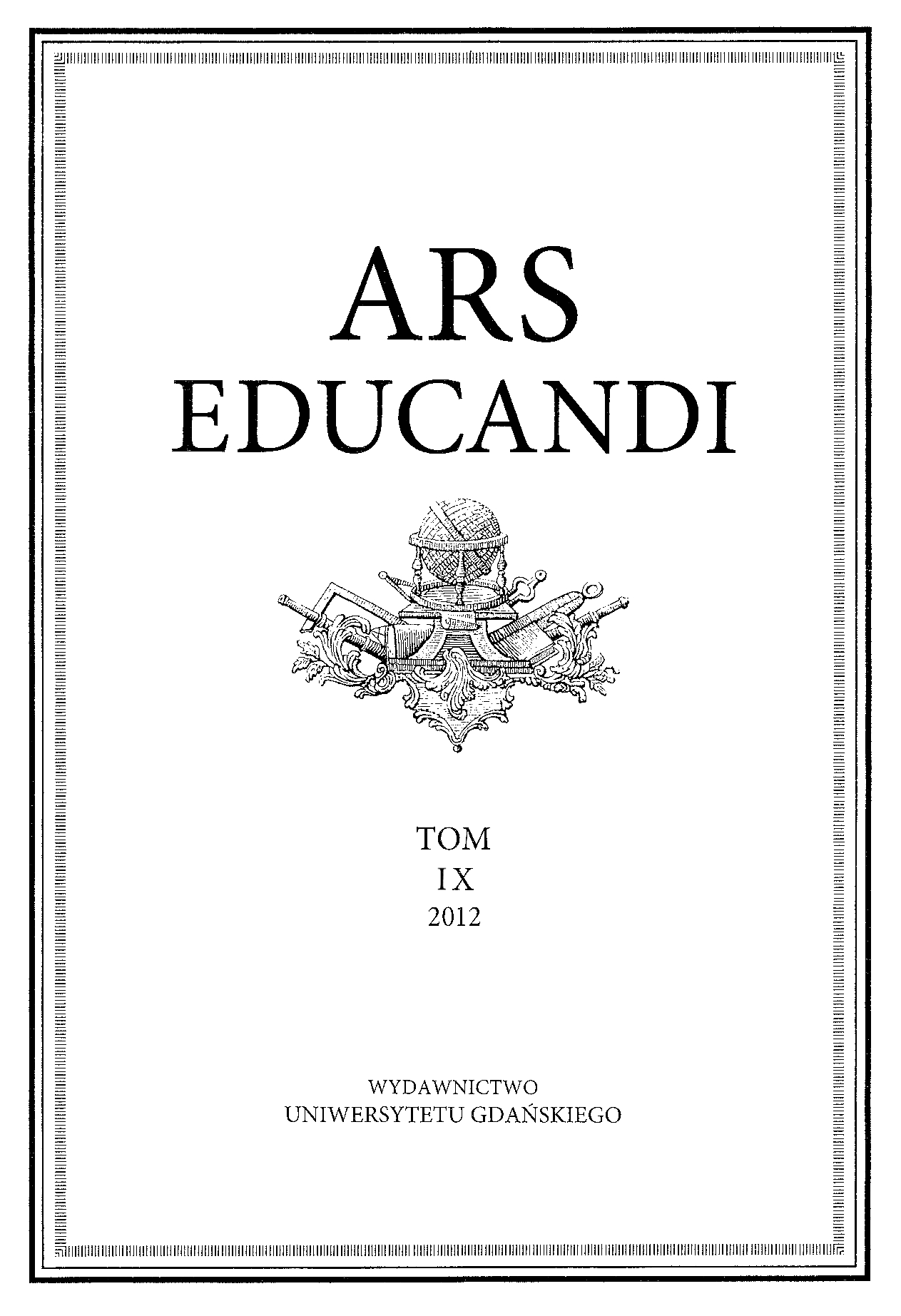Emancipation through Education: from the Enlightenment to Pragmatism
DOI:
https://doi.org/10.26881/ae.2012.09.05Keywords:
pedagogy, freedom, emancipation, educationAbstract
How to characterize the term “emancipation through education”? Emancipation is the process which leads to social equality, political freedom and a real possibility of individual progress for every human being. An egalitarian education means that knowledge is available for everybody irrespective of his or her social class, sex, race and nationality. It helps people from the oppressed or discriminated groups to fight injustice and teaches them how to defend their already achieved rights. The idea of emancipation through education understood in such a way emerged in the period of the Enlightenment, which encompassed the times before, during and right after the French Revolution. Then this idea evolved through the whole modern era, which ends with the beginning of the Second World War. In my essay Emancipation Through Education: from Enlightenment to Pragmatism I study the emancipatory threads present in the philosophical theories of such thinkers as Jean Jacques Rousseau, Jean Antoine Condorcet, Mary Wollstonecraft, Immanuel Kant, Friedrich Schiller, John Stuart Mill, Harriet Taylor Mill, Karl Marx, Friedrich Engels, Antonio Gramsci and John Dewey. My research showed me that some of the modern thinkers held an emancipatory position in some parts of their ideas while in the other parts of their thought they remained conservative. For example, Rousseau, one of the fathers of emancipatory pedagogy, was against the participation of women in the public space. Another example is using the power of beauty and joy to bring the “impulsive” masses under the control of the “rational” elites in Schiller’s vision of the aesthetic pedagogy. I analyse these “omissions” using critical discourses such as the philosophy of the feminist thinker Carole Pateman and the Marxist theoretician Terry Eagleton.

English translation: Anna Moroz-Darska
Modernisation of the journal's operations and translation into the English language of articles published in Ars Educandi in 2012-2017 were financed with funds from the Ministry of Science and Higher Education as a part of the task Science Promotion Activity (pl. DUN).
The task ‘The implementation of the editorial module on the platform of Uniwersyteckie Czasopisma Naukowe – a system facilitating the editing and management of the academic journal Ars Educandi‘ was financed as a part of contract 661/P-DUN/2018 of 12.06.2018 from funds of the Ministry of Science and Higher Education designated for the promotion of science.
The task ‘The creation of a modern online version of the academic journal Ars Educandi through the implementation of the publication module on the platform of Uniwersyteckie Czasopisma Naukowe and the handling of international indexing databases’ was financed as a part of contract 661/P-DUN/2018 of 12.06.2018 from funds of the Ministry of Science and Higher Education designated for the promotion of science.
The task ‘Preparation of the English language version of the last 6 annual issues (2012-2017) of the academic journal Ars Educandi and their publication online’ was financed as a part of contract 661/P-DUN/2018 of 12.06.2018 from funds of the Ministry of Science and Higher Education designated for the promotion of science.

 Academic Scientific Journals
Academic Scientific Journals




